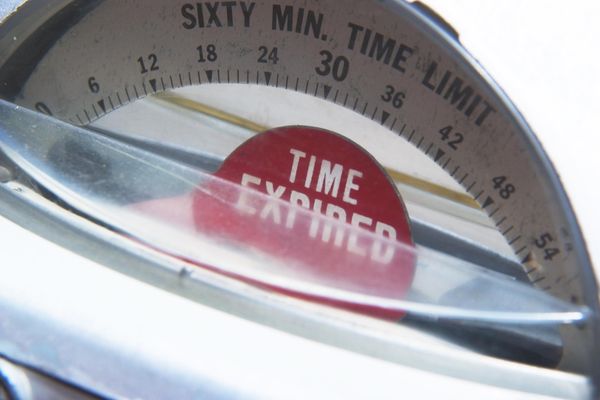With so much political debate about extending health insurance to all Americans, it may come as a surprise to learn that even with insurance, health care can be very expensive. Indeed, many Americans have learned this lesson the hard way.
High-deductible plans are one way people can end up with unexpectedly high bills, and these plans are becoming more common. According to Kaiser Family Foundation's annual employer health benefits survey, about 22% of covered workers in large firms and 45% at small firms have health plans with deductibles of at least $2,000.
Paying 100% of costs included under a high deductible can be particularly difficult for women, who have been shown to be more likely to have problems paying medical bills. And a Federal Reserve survey found that the average U.S. household would have trouble paying for more than a $400 unplanned expense.
Surprise! Even Good Insurance Doesn't Protect Against Surprise Medical Bills
Unexpected health care costs can be an even bigger surprise if you go to a clinician or health-care facility that doesn't have a negotiated contract with your insurance company, meaning they are "out-of-network." Those bills can be extremely high. If you get one, your insurance company may pay a portion of what they "allow" based on their negotiated contracts. But your actual out-of-pocket costs could be very high even after you reach the annual out-of-pocket limit set by the ACA. Why does this happen? Because the amount an out-of-network provider can charge you is unlimited.
These types of out-of-network bills are common. According to the Kaiser Family Foundation, 18% of all emergency visits and 16% of in-network hospital stays in 2017 had at least one out-of-network charge. Sarah Kliff, a well-known health-care journalist, personally reviewed more than 1,100 emergency room bills in 2018 and described in vivid detail how individuals go to "in-network" emergency rooms, only to discover that they may be billed for emergency procedures provided by out-of-network physicians. And a recent study showed that patients going to in-network hospitals received surprise bills about 12% of the time from out-of-network anesthesiologists and pathologists.
Fixing the problem
Surprise out-of-network bills are clearly a problem. The good news is that there is bipartisan support for limiting what people can be charged when they get out-of-network care. The bad news is there are barriers preventing new laws from addressing this problem.
Congress has been working on legislation to restrict the amount patients owe for out-of-network surprise bills. However, the two main federal approaches — linking maximum out-of-network charges to negotiated rates (also known as "benchmark pricing"), and independent arbitration — have different supporters and detractors, which has led to a stalemate. Despite this standoff, it is expected that some new federal law will be created to help address the problem of surprise bills in 2020, with an effective date in 2021.
Meanwhile, some states have acted to limit surprise bills from out-of-network providers. Their scope is limited, however, because some services are outside of their jurisdiction, either because the clinicians are literally outside of their borders or because providers like air ambulances are federally regulated — and also often cross state borders as they transport patients. Some states have tried or enacted more successful laws to limit surprise bills that may provide insights and lessons for federal laws, for example in California and New York.
A good path forward for a federal law would be to limit surprise bills to a benchmark amount. A reasonable amount might be the average amount that insurance companies negotiate for in-network prices for the same service in the same region. And perhaps, because of the complexity of the air ambulance services and regulations, those surprise bills could be handled through arbitration, with insurance companies required to pay 50% of any amounts above their average in-network price.
Coping with unexpected medical expenses
If you receive a surprise medical bill, here are a few steps you can take.
Ask for a discount. If you get a bill (or series of bills) for health care that you cannot afford, then you can and should ask for a discount from the hospital or doctor. You can negotiate for lower amounts or payment plan, whether or not you have insurance.
Get help. There are a number of organizations, such as UnionPlus and the National Association of Health Care Advocacy, that can help people with unaffordable health-care bills and assist with negotiations with hospitals and doctors.
Know your rights. Remember, most hospitals are nonprofit and, under federal law, are required to provide financial assistance to qualified low-income patients. Ask to speak with a case manager or financial representative at the hospital to explore whether that provision may apply to you.
Write your own terms. Legally, it remains an untested strategy, but some consumers are taking matters into their own hands by rewriting emergency room contracts before they receive services.
Use your benefits. If you get insurance through your job, talk to someone who handles benefits. You may be eligible for a flexible spending account (FSA) or similar arrangement in which your company will put in money specifically to help pay for medical expenses. If you don't have one now, you may be able to start one next year.
Advocate for change. Share your story with your Members of Congress and tell them you want them to pass legislation to limit surprise bills, including from air ambulances. Share the same message with your governor and state representatives, since they may be considering state legislation, and they can also urge their federal counterparts to act.







